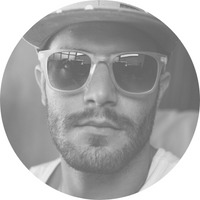Ideally we don't want to dive or train in a way that we're going to be so close to our limit. However, it's a competitive sport, so it's better to be ready for it to happen - shout out to all safety divers and instructors keeping everybody safe. I have a little story, around four years ago i was training in Tulum for a trip that i had planned to Egypt. After repetitive target dives, bifin dives, i came to the surface and i had like a proper LMC. I was fine though, i recovered quickly.
Ideally what you want to do is take the day off, drink some water, eat some food and, if available, breathe a couple of minutes of pure oxygen. That same afternoon, i decided to go for a no fins session in the pool, so, after my target dive in the pool, i had another LMC, much milder, but it was there you know. My body was not ready for that and i learned from my mistake. I hope this is useful, i hope you're a little more conservative. Remember to never dive alone and if you're gonna dive and and reach your limits, make sure you're diving with the appropriate safety.
Alli Penovich
I personally have never experienced a blackout, even with all the depth training i did last year. I just really paid attention to myself and my coach really stressed the importance of approaching depth at a very thought out pace. I was never pushing myself and i was already adapted to the dive times i was going to be facing.
While i was in Bali, i did see quite a few blackouts. The first one i ever saw was right before i was going for a personal best dive! The diver in front of me surfaced, did a couple recovery breaths and then blacked out. He came back a couple of seconds later and then a few minutes later i had to go and focus on my dive. I think most blackouts happen because people push themselves a little bit too much, they aren't listening to their bodies, they might be a little bit more tired than they really think they are, or push the previous training days a little bit too hard.
My advice would be to really listen to your body. If you're tired, just focus on technique dives instead of pushing the depth, you could always do depth another day and always make sure you are surrounded by great safety buddies, because that's the most important thing. You want to come home from every dive, so making sure you have good buddies that are always watching you and knowing your dive times and your dive style is super important.
Cristian Castano
I would like to tell you about the one blackout that i had when i was starting to freedive and the reason why it happened. When you try to
push your limits a little bit more than what you think you can do, there's definitely a possibility that you could black out. Mine happened while doing constant no fins. My equalization was not a big issue so i tried to go really deep, i didn't have much experience doing no fins and i tried to jump five meters deeper than my actual PB, so that was my first mistake. After that, my real mistake was that five meters before reaching the depth
i forced an equalization. So i hurt my lungs, i had a squeeze and then the other rookie mistakes was that i was a little bit overweight and that on the way up i just kept doing arm strokes and didn't start cooling. So about three-four meters before the surface, my friend
Thibault Guignes saved my life.
A little advice for everybody is to know your limits, don't make big jumps in your depth, listen to your body and if you feel there is any problem, just start pulling and try to get to the surface as soon as you can.
Watch The First Part Of The Series

 Nick Pelios
Freediver, Creator
Nick Pelios
Freediver, Creator

 Nick Pelios
Freediver, Creator
Nick Pelios
Freediver, Creator